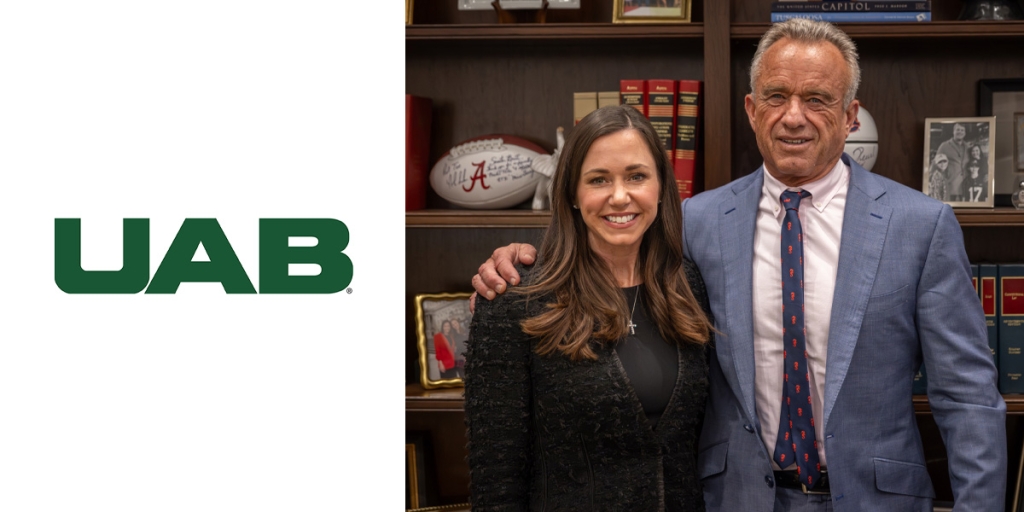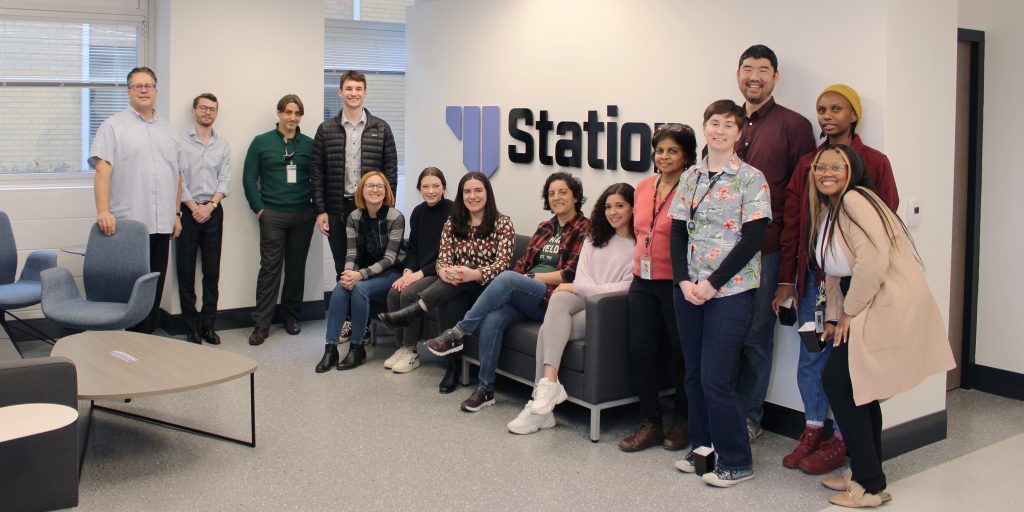Dr. Selwyn Vickers, senior vice president for Medicine and dean of the Heersink School of Medicine at the University of Alabama at Birmingham, has assumed the role of CEO of both the UAB Health System and the UAB/Ascension St. Vincent’s Alliance, while continuing as dean. Vickers replaces the retiring Will Ferniany, who led the health system for nearly 13 years.
Dawn Bulgarella, previously the chief financial officer for UAB Health System, has taken the role of senior operational leader and president of the health system. Bulgarella is the chief financial officer for the UAB/Ascension St. Vincent’s Alliance and is responsible for combined annual budgets in excess of $5 billion. She is a graduate of the University of Alabama and holds a master’s degree in health administration from UAB. In 2019, Bulgarella was named by Yellowhammer as a Women of Impact.
Reid Jones continues in his role as CEO of UAB Medicine, rounding out the senior management team along with Dr. Tony Jones, chief physician executive.
Vickers, a member of the prestigious Institute of Medicine of the National Academy of Sciences, is a world-renowned surgeon, pancreatic cancer researcher, pioneer in health disparities research and a native of Demopolis. He became dean of the Heersink School of Medicine in 2013. He was a member of the UAB surgical faculty from 1994 to 2006.
“The selection of Dr. Vickers as CEO of both the Health System and the Alliance will ensure a seamless transition of executive leadership and an uninterrupted commitment to excellence,” said UAB President Dr. Ray Watts. “We are proud to have this extraordinarily talented team of leaders, who will elevate our ability to provide the best patient care for our community, state, region and nation.”
“A key facet of my new role is ascertaining synergy between the lanes of academic research, patient care, and education and training,” Vickers said. “Ongoing alignment is achieved through our ability to focus on creating excellence in our individual lanes, then coming together in unity for the shared goal of improving the quality and outcomes for our patients.”
Vickers said the alignment of the health system with the leadership of the School of Medicine is an organizational structure used at many academic medical centers. The CEO/dean model is an operationalized strategy that has been successful at many institutions.
“The structural change of our clinical enterprise’s leadership from two roles to one comes from the significant growth we have experienced in the past few years,” Vickers said. “As many of our peer institutions have done, it made sense for UAB to consolidate the roles of CEO of the UAB Health System and dean of the Heersink School of Medicine to one person. A singular leader can fuse the interests of all groups at our enterprise and take a thoughtful approach to finances, operations and outcomes of both worlds.”
Alabamians have some of the most challenging health statistic disparities in the nation. Among Vickers’ priorities is to continue to build on and expand UAB’s programs of clinical excellence for the residents of Alabama, the Deep South and America. In addition, Vickers said that dealing with socioeconomic barriers to health care and education is a key goal. Building on UAB’s efforts to bring affordable health care to all people and regions of Alabama will be a hallmark of his leadership.
“From a young age, I knew I wanted to practice medicine; but more than that, I wanted to make a difference in the lives of other people,” Vickers said. “Throughout my career, I have been passionate about clinical care, research and education. I have been the medical student, the trainee, the researcher, the physician, the teacher and the administrative leader. As we move forward into 2022 and the years beyond, UAB will continue to pursue high-quality patient care and the best possible patient outcomes, and continue to grow our nationally recognized programs to transform this part of the country into a healthier place to live and work.”
Vickers earned his undergraduate and medical degrees from Johns Hopkins University, where he completed a surgical residency. He joined the faculty of UAB as an assistant professor in the Department of Surgery, where he was later appointed to professor, division director and the John H. Blue Chair of General Surgery. He was a founder of the UAB Minority Health and Health Disparities Research Center and was principal investigator of UAB’s first pancreatic cancer specialized programs of research excellence.
In 2006, Vickers left UAB to become the Jay Phillips Professor and chair of the Department of Surgery at the University of Minnesota Medical School, one of the oldest and most storied surgery departments in the country.
In 2013, Vickers became senior vice president of Medicine and dean of the UAB Marnix E. Heersink School of Medicine, one of the largest public academic medical centers in the United States. In his role as dean, Vickers leads the medical school’s main campus in Birmingham, as well as its regional campuses in Montgomery, Huntsville and Tuscaloosa.
He was inducted into the Alabama Academy of Honor for the Class of 2021, which recognizes living Alabamians for their efforts and accomplishments in serving the state and country.
The UAB Health System is a $5.8 billion enterprise that includes UAB Hospital, UAB Hospital-Highlands, UAB Callahan Eye Hospital and management relationships with Medical West, Baptist Health Montgomery, Russell Medical, John Paul Jones, Whitfield Regional, Northwest Regional Health and Regional Medical Center of Central Alabama hospitals. The system has affiliate relationships with Infirmary Health in Mobile and Northeast Regional Hospital in Anniston. The system includes Cooper Green Mercy Health Services and the UAB Health System/Ascension St. Vincent’s Alliance.
This story originally appeared on the UAB News website.
(Courtesy of Alabama NewsCenter)













